The Best Platforms for Advertising Long-Term Rentals in Florida: A Comprehensive Guide
When managing long-term rental properties in Florida, the key to attracting reliable tenants is choosing the right advertising platforms. With the state’s large and diverse rental market, from urban areas like Miami and Orlando to quieter coastal communities, finding a platform that maximizes exposure and connects you with the right renters is critical. This guide will explore the best platforms for advertising long-term rentals in Florida and provide practical tips for ensuring your listings stand out.
Why the Right Platform Matters for Long-Term Rentals
Selecting the appropriate platform can significantly impact your ability to fill vacancies quickly with quality tenants. Whether you own single-family homes, multi-unit apartments, or condos in Florida, the right platform will help you manage your listing efficiently, reduce vacancy periods, and ultimately increase your rental income.
Long-term rentals typically have different needs than short-term vacation properties, so understanding which platforms cater to long-term tenants is essential. A good platform will not only help you advertise your property effectively but will also offer tools to manage applications, screen tenants, and handle payments.
Leading Platforms for Long-Term Rental Listings
When advertising long-term rentals in Florida, you have a range of well-established platforms to consider. These platforms cater to tenants seeking properties for year-round living, from families looking for homes in suburban areas to professionals searching for apartments in bustling cities.
Zillow Rental Manager
Zillow is one of the most popular and widely recognized platforms for long-term rental listings in the U.S., and Florida is no exception. With millions of monthly visitors, Zillow Rental Manager offers property owners a robust suite of tools to manage their rentals.
Key Features:
- Free listings: Zillow offers a free basic listing option, with additional paid features for enhanced visibility.
- Tenant screening: The platform includes comprehensive tenant screening options, including credit checks, background checks, and eviction history.
- Rent collection and payments: Zillow Rental Manager also facilitates rent collection and offers payment reminders, streamlining the leasing process for both property owners and tenants.
Best Practices:
- Use high-quality images: Make sure to include high-resolution photos of your property’s interior and exterior to capture potential tenants’ attention.
- Create detailed listings: Include clear descriptions about the property’s features, the neighborhood, nearby amenities, and transportation options.
- Leverage the premium features: If you’re in a competitive rental market, consider paying for the premium listing option to increase your property’s visibility.
Apartments.com
Apartments.com is another major player in the long-term rental space. It specializes in connecting renters with apartments, condos, and single-family homes. Its vast database and powerful search filters help renters find exactly what they’re looking for, making it a go-to platform for many landlords in Florida.
Key Features:
- Professional-grade listings: Apartments.com allows landlords to create detailed listings with professional-grade photos and virtual tours.
- Enhanced visibility: Premium listing options help ensure your property appears at the top of search results.
- Tenant reviews and ratings: Apartments.com includes reviews, which can build credibility and trust with prospective renters.
Best Practices:
- Provide a virtual tour: Take advantage of the platform’s virtual tour capabilities to give potential tenants a detailed view of your property.
- Highlight key amenities: Make sure to mention any standout features like pools, gyms, or pet-friendly policies, as these can be attractive to tenants.
- Update your listings regularly: Keep your listings fresh by updating them with any new features or price changes.
Realtor.com
While known for its home-buying listings, Realtor.com is also an excellent resource for long-term rental listings, particularly for properties in Florida’s real estate hotspots. With nationwide reach, Realtor.com attracts a diverse audience, including renters who are relocating or searching for a home in Florida’s most desirable areas.
Key Features:
- High traffic volume: Realtor.com boasts a large user base, making it one of the top platforms for rental listings.
- Comprehensive search filters: Tenants can filter listings by location, price, amenities, and other preferences, increasing the chances of finding the perfect match.
- Lease agreement tools: Realtor.com offers easy-to-use lease agreement templates that can simplify the leasing process for landlords.
Best Practices:
- Make the most of the description: Include detailed information about the property and the surrounding neighborhood to provide a complete picture for potential renters.
- Include high-quality photos: Great photos are essential to attract serious inquiries, especially in competitive markets.
- Be responsive: Timely communication with renters can help you secure high-quality tenants quickly.
Craigslist
Despite its simplicity, Craigslist continues to be one of the most widely used platforms for advertising long-term rental properties. It offers free listings for landlords and property managers, making it an appealing choice for those who are just starting out or working with a limited budget.
Key Features:
- Free listings: Craigslist does not charge for basic rental listings, which can be a significant advantage for landlords looking to minimize costs.
- Direct contact with tenants: Listings allow landlords to communicate directly with prospective tenants, facilitating the leasing process.
- Large user base: Craigslist is still a highly trafficked site, attracting thousands of local renters looking for homes, apartments, or condos in Florida.
Best Practices:
- Create a compelling title: In a crowded marketplace, the title of your Craigslist listing is crucial. Make it clear, concise, and descriptive.
- Be clear in your description: Provide all necessary information in the listing to avoid back-and-forth communication. Mention rent, deposit, lease terms, and any important property details.
- Update your listing regularly: Ensure that your listing stays at the top of the results by reposting it periodically.
Niche Platforms for Long-Term Rentals in Florida
In addition to the major platforms mentioned above, there are also some niche platforms that specialize in specific types of long-term rentals or particular Florida regions. These can be beneficial for targeting specific tenant groups, such as retirees, students, or military personnel.
Rent.com
Rent.com focuses primarily on apartments and rental homes. It’s widely used by people looking to move into urban areas and is popular in Florida cities like Tampa, Orlando, and Miami.
Key Features:
- Free rental listings: Landlords can list their properties for free, and Rent.com offers enhanced features for a fee.
- Moving resources: Rent.com provides moving resources and tools, which can be helpful for tenants planning their relocation.
Best Practices:
- Use Rent.com’s moving resources: Take advantage of the moving tools Rent.com offers to provide added value for potential tenants.
- Target urban areas: Rent.com is ideal for properties located in larger metropolitan areas, so tailor your listings accordingly.
HotPads
HotPads is a property search platform that specializes in rental homes and apartments, focusing heavily on areas like Miami, Tampa, and other urban centers in Florida. It’s part of the Zillow Group, which means it benefits from the same robust audience and marketing features.
Key Features:
- Property maps: HotPads offers an interactive map that allows renters to easily browse properties based on their location preferences.
- Targeted audience: The platform targets both families and professionals, making it suitable for a variety of rental properties.
Best Practices:
- Focus on location: Since HotPads places a heavy emphasis on location, make sure to highlight the neighborhood’s amenities, schools, and transportation links.
- Update frequently: HotPads allows property managers to update their listings regularly, so keep the information current.
How to Maximize Your Exposure on These Platforms
To ensure your long-term rental property gets the most visibility on these platforms, here are some actionable tips:
- Use the best photos possible: High-quality photos are crucial for capturing the attention of potential tenants. Invest in professional photography or take well-lit, clear pictures yourself.
- Respond quickly to inquiries: Timely responses show professionalism and can help you secure tenants faster.
- Optimize your listings: Use relevant keywords in your listing titles and descriptions to ensure that your property shows up in search results. For example, include terms like “pet-friendly,” “close to public transport,” or “newly renovated.”
- Offer competitive pricing: Research similar listings in your area to ensure your rent is competitive for the amenities and location your property offers.

Get a Free Rental Analysis
Want to know how much your home will rent for? We’ll send you a free rental report!
Optimizing Your Long-Term Rental Listings for Maximum Exposure
Once you’ve chosen the right platform to advertise your long-term rental property in Florida, the next step is optimizing your listings for maximum visibility. With so many properties available in popular Florida rental markets, standing out from the competition requires strategic efforts in presentation, communication, and engagement. In this section, we’ll explore actionable strategies to ensure your listings attract high-quality tenants quickly.
Crafting an Irresistible Listing
Your listing serves as the first impression for potential tenants, so making it as appealing and informative as possible is essential. Below are key elements to focus on to craft a compelling listing that captures attention.
High-Quality Photos and Videos
Visual content is one of the most influential factors when prospective tenants browse rental listings. A well-photographed property is more likely to attract attention and generate inquiries. Here’s how to improve your listing photos:
- Take clear, well-lit photos: Ensure the property is well-lit and tidy before taking pictures. Capture the main rooms, including the kitchen, living room, bedrooms, and bathrooms, as well as any outdoor spaces such as patios, gardens, or balconies.
- Highlight special features: Showcase any unique or desirable features of the property, such as modern appliances, updated fixtures, hardwood floors, or large closets.
- Consider a virtual tour: Many platforms, such as Apartments.com and Zillow, allow for virtual tours. This feature is especially beneficial in today’s digital world, as it provides potential tenants with an immersive experience of the property without needing to visit in person.
Writing an Engaging Description
A well-crafted description complements your photos and helps potential tenants understand what they can expect. Here’s what to include in your property descriptions:
- Property highlights: Start by emphasizing the best features, such as spacious rooms, ample parking, proximity to public transport, or pet-friendly policies.
- Detailed rental terms: Clearly state the rental price, lease length, security deposit requirements, and whether utilities are included.
- Neighborhood features: Describe the surrounding area, including local amenities such as parks, schools, shopping centers, and transportation options. This helps renters understand the convenience and lifestyle associated with your property.
- Call to action: End your description with a clear invitation to contact you for more information or schedule a tour.
Consistency Across Platforms
If you list your property on multiple platforms, ensure that your descriptions, photos, and other details are consistent. This helps build trust with potential tenants and ensures that renters don’t feel misled. For example, if your listing mentions that the property is pet-friendly, make sure this is reflected on every platform where your listing appears.
Using Keywords to Increase Search Visibility
Just like any other online content, rental listings benefit from strategic use of keywords. When tenants search for properties online, they typically use keywords related to location, price, and features. To ensure your listing is found, include relevant keywords in your title and description.
Title Tips
Your listing’s title is the first thing potential tenants will see, so make it count. Use specific, descriptive terms that reflect what your property offers and match what tenants are searching for. For example:
- “Spacious 2-Bedroom Condo in Downtown Miami – Pet-Friendly & Newly Renovated”
- “Family Home for Rent in West Palm Beach – Great Schools & Large Yard”
- “Modern 1-Bedroom Apartment Near Public Transit in Orlando”
Make sure to include location-specific terms (e.g., “Miami,” “Downtown,” “West Palm Beach”), the type of property (e.g., “condo,” “house,” “apartment”), and any key features (e.g., “pet-friendly,” “newly renovated,” “close to transport”).
Description Tips
In the description section, use a variety of keywords to make your property more discoverable. Be sure to include:
- Location-based keywords: Mention the neighborhood or city your property is located in (e.g., “Orlando apartments for rent” or “Miami rental home”).
- Property-specific features: Use terms like “modern kitchen,” “spacious living area,” “private balcony,” “hardwood floors,” “garage,” or “off-street parking” to attract tenants seeking these amenities.
- Tenant preferences: If you offer specific perks, such as “pet-friendly,” “close to schools,” or “high-speed internet included,” include these terms to target potential tenants looking for these features.
Best Practices for Managing Tenant Inquiries
Once your listing is live, you’ll start receiving inquiries from prospective tenants. Managing these inquiries effectively is crucial for securing quality renters. Here’s how to handle inquiries professionally and efficiently:
Be Responsive and Timely
In Florida’s competitive rental market, tenants can move quickly when they find a property they like. Respond to inquiries promptly—ideally within 24 hours—to show that you’re professional and serious about renting. Delay in responses may result in missed opportunities or tenants moving on to other listings.
Screen Tenants Thoroughly
One of the most important steps in renting out your property is ensuring that you select tenants who will pay rent on time and take care of the property. Use screening tools available on most platforms (such as Zillow and Apartments.com) to conduct background checks, credit checks, and eviction history checks.
In addition to these tools, be sure to ask potential tenants the following questions:
- Why are you moving? Understanding their motivation for relocating can provide insight into whether they’re a good fit for your property.
- Do you have any pets? Ensure that the tenant’s pets align with your pet policy.
- What is your monthly income? Ask tenants to confirm their income level to ensure they can afford the rent. A general rule of thumb is that tenants should earn at least three times the monthly rent.
Set Clear Expectations
Make sure that potential tenants are fully aware of the property’s rules, lease terms, and expectations before agreeing to sign a lease. Clarify any policies regarding rent payment due dates, maintenance requests, and utilities. Clear communication helps prevent misunderstandings down the road.
Be Professional and Courteous
When communicating with prospective tenants, always maintain a professional and courteous tone. Prompt, respectful communication fosters positive relationships with tenants and increases the likelihood of finding reliable renters who will treat the property with care.
Pricing Your Rental Property Competitively
Setting the right rental price is one of the most important aspects of advertising long-term rental properties. If your price is too high, you may scare away potential tenants. If it’s too low, you risk leaving money on the table. To set the optimal price for your rental property, follow these tips:
Research Comparable Listings
Before setting your rental price, research similar properties in your area to see what they’re charging. Platforms like Zillow and Apartments.com allow you to view rental prices for comparable properties, which helps you assess whether your property is priced competitively.
Look for properties that are similar in:
- Size (square footage)
- Number of bedrooms and bathrooms
- Age and condition of the property
- Location within the city or neighborhood
By researching local listings, you can set a price that attracts tenants without underpricing your property.
Consider Seasonal Trends
Florida’s rental market can fluctuate based on seasonality. For example, winter months might see an influx of tourists or snowbirds (people who migrate from colder states), which could increase demand for rental properties. During the summer, however, you may need to adjust your pricing to stay competitive.
Be prepared to adjust your rent based on demand. For example, if you find that demand is low during certain months, consider offering incentives such as discounted rent for the first month to attract tenants.
Factor in Additional Costs
When pricing your rental property, remember to factor in any costs you’ll incur as a landlord, such as property maintenance, utilities (if included), and insurance. Be sure your rent covers these costs while still leaving room for a profit.

Managing Tenant Applications and Finalizing the Lease Agreement
Once you have attracted the right prospective tenants to your long-term rental property in Florida, the next step is to carefully manage the application process and finalize the lease agreement. This section will cover the best practices for reviewing tenant applications, conducting interviews, and finalizing the lease.
Screening Tenant Applications Thoroughly
Proper tenant screening is essential to ensure that you’re renting to responsible individuals who will respect your property and meet their financial obligations. Many online platforms, such as Zillow Rental Manager and Apartments.com, offer built-in tenant screening services, but it’s important to go beyond the automated checks.
Background Checks and Credit Reports
Using a platform’s built-in screening tool is a convenient option, but if you’re doing this manually, be sure to check the following:
- Criminal background: It’s important to know whether the potential tenant has a criminal history, especially for crimes that could impact your property or other residents.
- Eviction history: Make sure the applicant doesn’t have a history of evictions. A past eviction can indicate that they may not follow lease terms or pay rent on time.
- Credit report: Review the tenant’s credit history to gauge their ability to pay rent. Ideally, tenants should have a credit score of 620 or higher, although you may be willing to accept tenants with lower scores if they have a solid rental history or a higher income.
Be consistent with your screening process to avoid discrimination. Ensure that you treat every applicant the same and that your criteria align with fair housing laws.
Rental History and References
In addition to background and credit checks, verify the applicant’s rental history by contacting their previous landlords or property managers. Ask questions such as:
- Was rent paid on time?
- Did the tenant take good care of the property?
- Were there any disputes or issues during the lease?
This will help you gauge the tenant’s reliability and how they might treat your property.
Income Verification
To ensure that tenants can afford the rent, request proof of income, such as pay stubs, bank statements, or tax returns. A general rule of thumb is that tenants should earn three times the monthly rent amount to comfortably afford housing costs.
Interviewing the Tenant
While the screening process involves gathering information through background checks and documentation, a personal interview is also essential to get a sense of the tenant’s character. If you are renting a single-family home or small multi-unit property, try to meet the tenant in person or have a video call if necessary. Here are a few interview questions to consider:
- What is your reason for moving?
- How long do you plan to rent the property?
- Do you have any pets, and how many?
- Do you have any maintenance experience or concerns regarding upkeep of the property?
This will allow you to ensure that the tenant is a good fit for the property, and it will also give you the chance to gauge their level of responsibility.
Creating and Finalizing the Lease Agreement
Once you’ve selected the right tenant, the next step is to finalize the lease agreement. A lease serves as a legal document that outlines the terms and conditions under which the tenant can occupy the property. Ensuring that the lease is comprehensive and clear is vital in preventing future conflicts.
Key Elements of a Lease Agreement
A well-drafted lease agreement should cover all necessary aspects of the rental arrangement. Here are some of the critical elements to include:
- Lease Term: Specify the start and end dates of the lease, including any automatic renewal clauses if applicable. Most long-term leases are for one year, but this can vary depending on your preferences and the tenant’s needs.
- Rent Amount and Payment Due Dates: Clearly state the monthly rent, when it’s due, and how it should be paid (e.g., online payment, check, etc.). Include details about late fees for missed payments and the consequences of not paying on time.
- Security Deposit: Outline the security deposit amount (typically one month’s rent), when it is due, and the conditions under which it may be withheld at the end of the lease.
- Utilities: Specify which utilities are covered by the rent (e.g., water, gas, electricity) and which the tenant will be responsible for (e.g., internet, cable).
- Maintenance Responsibilities: Detail both the landlord’s and tenant’s responsibilities for property maintenance. For example, you may be responsible for major repairs, while the tenant may handle minor repairs and yard upkeep.
- Pet Policy: If you allow pets, specify the types and sizes of pets allowed, any additional pet fees, and whether you require renters’ insurance for pet damage.
- Rules and Regulations: Establish clear guidelines for tenants regarding noise, parking, guests, and smoking. These rules help ensure a peaceful living environment for all tenants.
Legal Considerations
Ensure that your lease agreement complies with Florida rental laws. For example, Florida law requires landlords to provide tenants with a 15-day notice before starting eviction proceedings for non-payment of rent. Familiarize yourself with landlord-tenant laws in Florida to ensure that your lease is legally sound.
You may also want to consult with an attorney to review the lease before presenting it to the tenant. This helps avoid any potential legal issues down the line.
Signing the Lease
Once both you and the tenant agree on the lease terms, it’s time to sign. Both parties should sign the document, and it’s a good idea to make copies for both the tenant and yourself. Many platforms, such as Zillow and Apartments.com, offer electronic signature options, which make the process more efficient and secure.
Preparing for Move-In
Once the lease is signed, you’ll need to prepare for the tenant’s move-in. Here are some essential tasks to complete before they settle in:
- Conduct a Property Inspection: Walk through the property with the tenant to document its condition. Make sure to take photos and note any existing damage or wear and tear. Both parties should sign the inspection report to avoid disputes at the end of the lease.
- Provide Keys and Access Information: Ensure that the tenant receives keys, access codes, or garage openers if applicable. If you use a keyless entry system, provide them with the necessary access codes.
- Explain Maintenance Procedures: Inform the tenant about how to request maintenance or report issues. Make sure they know how to contact you in case of emergencies.
- Provide a Welcome Packet: If you manage multiple properties or are renting for the first time, consider creating a welcome packet that includes contact information, guidelines for common areas (if applicable), trash collection schedules, and any other essential details.
Managing Tenant Relationships Throughout the Lease
Successfully managing long-term rental properties is about more than just signing a lease agreement. Maintaining positive relationships with tenants is key to ensuring that the rental experience is smooth and that tenants remain satisfied throughout their tenancy.
Communication is Key
Keeping an open line of communication with tenants is essential for maintaining a positive relationship. Respond to inquiries promptly and professionally, and make sure to check in periodically to see if they’re experiencing any issues with the property. If there are any upcoming repairs or changes to the property, provide advance notice to ensure that tenants feel respected and informed.
Regular Property Inspections
To maintain the condition of your property and address issues before they escalate, consider conducting regular property inspections. Florida landlords are allowed to inspect properties with reasonable notice (typically 24 hours) as long as it’s not done excessively. Use inspections to ensure that tenants are complying with lease terms, and address any maintenance needs early on.
Handling Lease Renewals
As the end of the lease approaches, begin discussions with tenants about whether they plan to renew. If they are satisfied with the property and the lease terms, consider offering a renewal agreement. If you want to increase the rent upon renewal, make sure to give adequate notice and explain the reason for the price increase. Keeping tenants happy and informed about any changes can help secure long-term rentals and reduce turnover.
Final Thoughts
Advertising long-term rentals in Florida requires a comprehensive strategy that combines the right platforms, effective tenant screening, and clear lease agreements. By leveraging online platforms such as Zillow, Realtor.com, and Rent.com, landlords can efficiently market their properties to a wide audience while using thorough screening and interview processes to find reliable tenants. Clear lease agreements, consistent communication, and regular property inspections help foster positive tenant relationships and minimize legal issues. By following these best practices, landlords can navigate the rental market successfully, ensuring their properties remain well-managed and profitable.
Suggested Relevant Links:
Advertising Strategies That Cut Days on Market by 50%
Comprehensive Guide to Efficiently Self-Managing Your Rental Properties
How to Self-Manage Your Rental Properties Efficiently: A Step-by-Step Guide
Long-Term Rental Property Management Palm Beach
How to Optimize Property Listings for Maximum Exposure in Palm Beach County
Frequently Asked Questions (FAQs)
1. What is the best platform for advertising long-term rentals in Florida?
Some of the most effective platforms for advertising long-term rentals in Florida include Zillow, Apartments.com, Realtor.com, and Rent.com. These platforms offer a wide reach and allow landlords to easily list and manage their properties.
2. How can I screen tenants effectively?
Effective tenant screening involves conducting background checks, reviewing credit reports, checking rental history, and verifying income. Platforms like Zillow Rental Manager provide built-in screening tools to help simplify this process.
3. Do I need a lawyer to create a lease agreement?
While you can create your own lease agreement, it’s highly recommended to have a lawyer review it to ensure compliance with Florida rental laws. This helps avoid legal issues and ensures that your lease is clear and enforceable.
4. How can I increase tenant retention?
Maintaining open communication, being responsive to maintenance requests, and offering lease renewal incentives are all strategies that can help increase tenant retention. A positive tenant experience leads to long-term tenants who are more likely to stay.
5. What should I include in a property listing?
A good property listing should include clear and high-quality photos, a detailed description of the property, rent amount, lease terms, amenities, and information on the surrounding neighborhood. Being transparent and thorough helps attract serious tenants.



